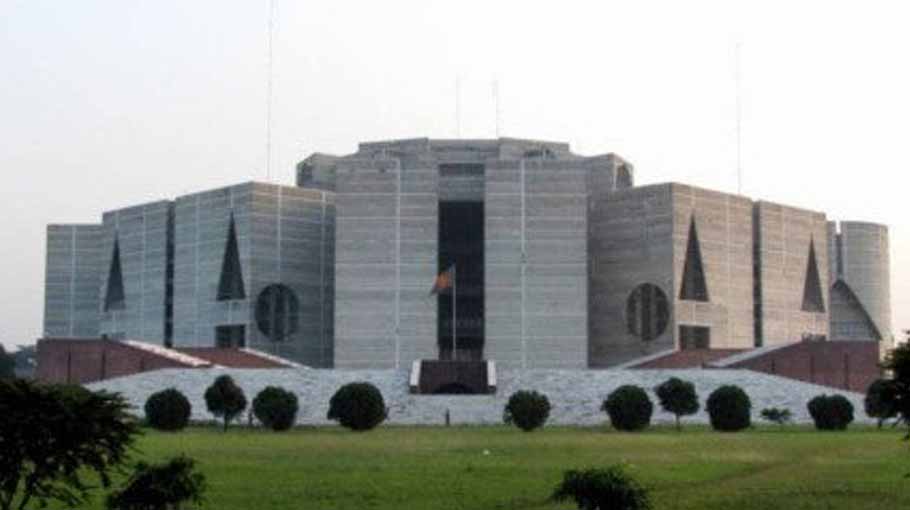JS committee gets 2 more months to review media employees bill

The Parliamentary Standing Committee on Information and Broadcast on Monday got another 60 days to examine the much-talked-about Mass Media Employees (Services Conditions) Bill 2022.
Chairman of the Committee Hasanul Huq Inu sought the time in Parliament and the House approved.
On March 28 of this year, Information and Broadcast Minister Hasan Mahmud placed the Bill and it was sent to the parliamentary standing committee on the respective ministry for scrutiny of the proposed law.
According to the source, the Standing Committee did not sit for a meeting till now.
Various journalists organisations and owners associations have opposed many sections of the proposed law.
The wages and benefits of journalists, employees and press workers, artists of broadcast, online, and print media outlets would be fixed under the proposed law.
As per the Bill, journalists will be regarded as media professionals, not as workers.
The wage board will be applicable for journalists and employees of all the media outlets, including print and electronic, as per the Bill.
According to the Bill, the minimum working hours for media employees will be 48 hours in a week, while the casual leave will be 15 days instead of 10 days and the earned leave will be 100 days instead of 60 days annually.
If anybody works beyond the stipulated time, he or she will be entitled to overtime pay.
Besides, the festival leave will be 10 days in a year, recreation leave will be 15 days after every three years, and the maternity leave will be six months in place of the existing eight weeks.
If anyone or organisation violates the provisions of the Bill, s/he will be fined Tk 50,000-Tk 5 lakh.
The government will be able to cancel the license or registration of the media. The owners of media outlets will also face punishment for violation of the law.
If anyone or any organisation violates the provisions of the Bill, he/she will face monetary fine or imprisonment, the Cabinet secretary said.
Once the new law is passed in parliament, jobs of media employees will no longer be regulated under the labour law.
Currently, journalists and employees of media houses are regarded as “workers” under the labour law.
Once the law is passed, they will be regarded as media personnel, not workers.
According to the proposed law, a wage board will be formed for the media personnel.
The wage board will fix salaries and allowances of media personnel in line with the salary scale of the government employees and it will be applicable to the owners of all media outlets.
Every media house will have a provident fund which will be applicable to a new employee after one year in service instead of two years. An employee will contribute 8 to 10 percent of his basic salary, currently 7 percent, and an equal amount will be deposited in the fund by the owner of the media house, the proposed law states.




